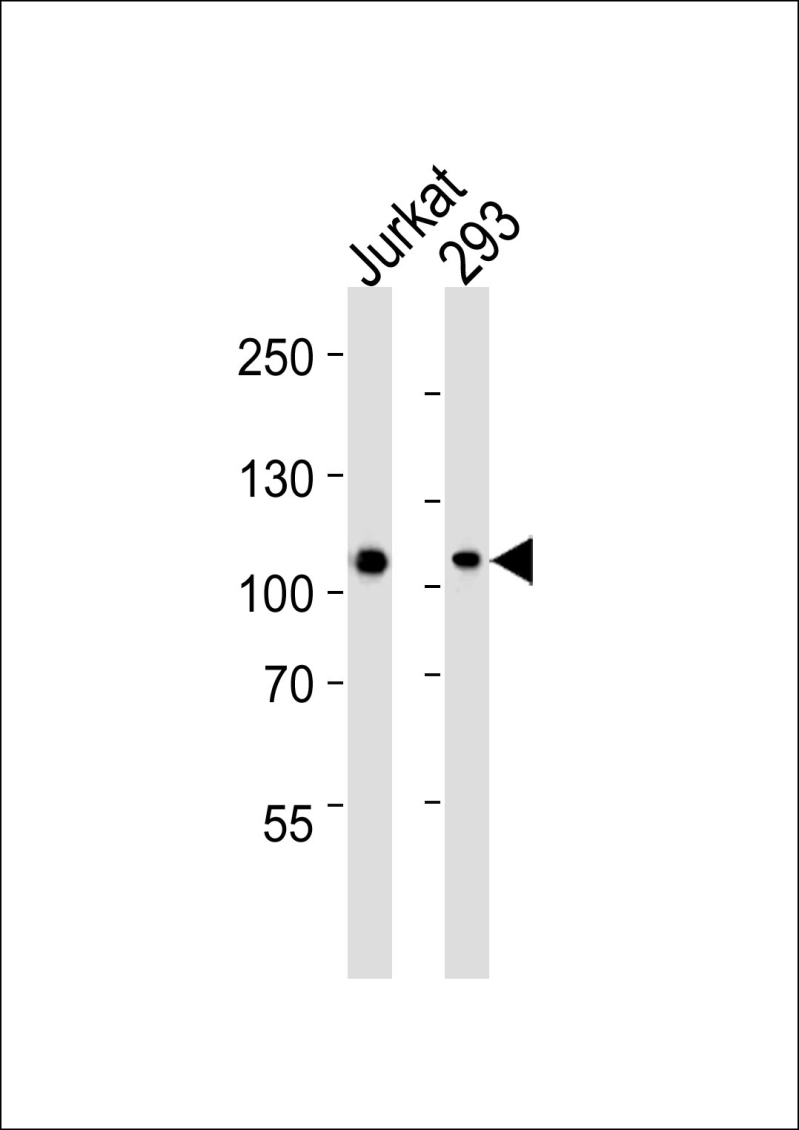
| WB | 1/1000 | Human,Mouse,Rat |
| IF | 咨询技术 | Human,Mouse,Rat |
| IHC | 咨询技术 | Human,Mouse,Rat |
| ICC | 技术咨询 | Human,Mouse,Rat |
| FCM | 咨询技术 | Human,Mouse,Rat |
| Elisa | 咨询技术 | Human,Mouse,Rat |
| Aliases | Melanoma-associated antigen D1, MAGE tumor antigen CCF, MAGE-D1 antigen, Neurotrophin receptor-interacting MAGE homolog, MAGED1, NRAGE |
| Entrez GeneID | 9500 |
| WB Predicted band size | 86.2kDa |
| Host/Isotype | Mouse IgG1 |
| Antibody Type | Primary antibody |
| Storage | Store at 4°C short term. Aliquot and store at -20°C long term. Avoid freeze/thaw cycles. |
| Species Reactivity | Human |
| Immunogen | This MAGED1 antibody is generated from a mouse immunized with a KLH conjugated synthetic peptide between 20-224 amino acids from the Central region of human MAGED1. |
+ +
以下是关于MAGED1抗体的3篇代表性文献的简要总结:
1. **文献名称**:*MAGED1 is a novel regulator of p53 and contributes to cisplatin-induced senescence*
**作者**:Yang X, et al.
**摘要**:该研究利用MAGED1抗体通过免疫沉淀和Western blot技术,发现MAGED1通过与p53相互作用调控DNA损伤诱导的细胞衰老过程,提示其在癌症治疗反应中的作用。
2. **文献名称**:*Melanoma antigen family D1 (MAGED1) is a novel neurodevelopmental disorder-associated gene*
**作者**:Marneros AG, et al.
**摘要**:通过免疫组化(使用MAGED1抗体)和小鼠模型,研究发现MAGED1在中枢神经系统发育中起关键作用,其突变可能导致神经发育障碍,为疾病诊断提供潜在标志物。
3. **文献名称**:*MAGED1 modulates proliferation and apoptosis in gastric cancer via PI3K/AKT pathway*
**作者**:Li J, et al.
**摘要**:该研究利用MAGED1抗体进行组织芯片分析,发现MAGED1在胃癌中高表达,并通过激活PI3K/AKT通路促进肿瘤增殖,提示其作为胃癌治疗靶点的潜力。
---
**备注**:若需获取全文或更多文献,建议通过PubMed(https://pubmed.ncbi.nlm.nih.gov)检索关键词"MAGED1 antibody"或结合具体研究领域筛选。部分研究可能侧重于抗体开发(如特异性验证),而另一些则聚焦于MAGED1的疾病机制研究。
MAGED1 (melanoma-associated antigen D1) is a member of the MAGE protein family, which shares homology with cancer-testis antigens involved in tumorigenesis and immune regulation. MAGED1. also known as NRAGE, is ubiquitously expressed and plays roles in diverse cellular processes, including apoptosis, cell cycle regulation, and neural development. It interacts with signaling pathways such as p75 neurotrophin receptor (p75NTR), Wnt/β-catenin, and BMP pathways, influencing differentiation, survival, and stress responses.
MAGED1 antibodies are essential tools for studying its expression, localization, and function in both normal and pathological contexts. These antibodies are widely used in techniques like Western blotting, immunohistochemistry (IHC), and immunofluorescence (IF) to detect MAGED1 in tissues and cell lines. Research has linked MAGED1 dysregulation to cancers (e.g., melanoma, breast cancer), neurodevelopmental disorders, and neurodegenerative diseases, highlighting its potential as a therapeutic or diagnostic target.
Commercial MAGED1 antibodies are typically raised against specific epitopes (e.g., human or mouse sequences) and validated for specificity via knockout controls. Challenges include cross-reactivity with other MAGE family members, necessitating careful validation. Studies using MAGED1 antibodies have uncovered its role in neural crest cell migration, skeletal development, and stress-induced apoptosis, underscoring its multifaceted biological significance.
×